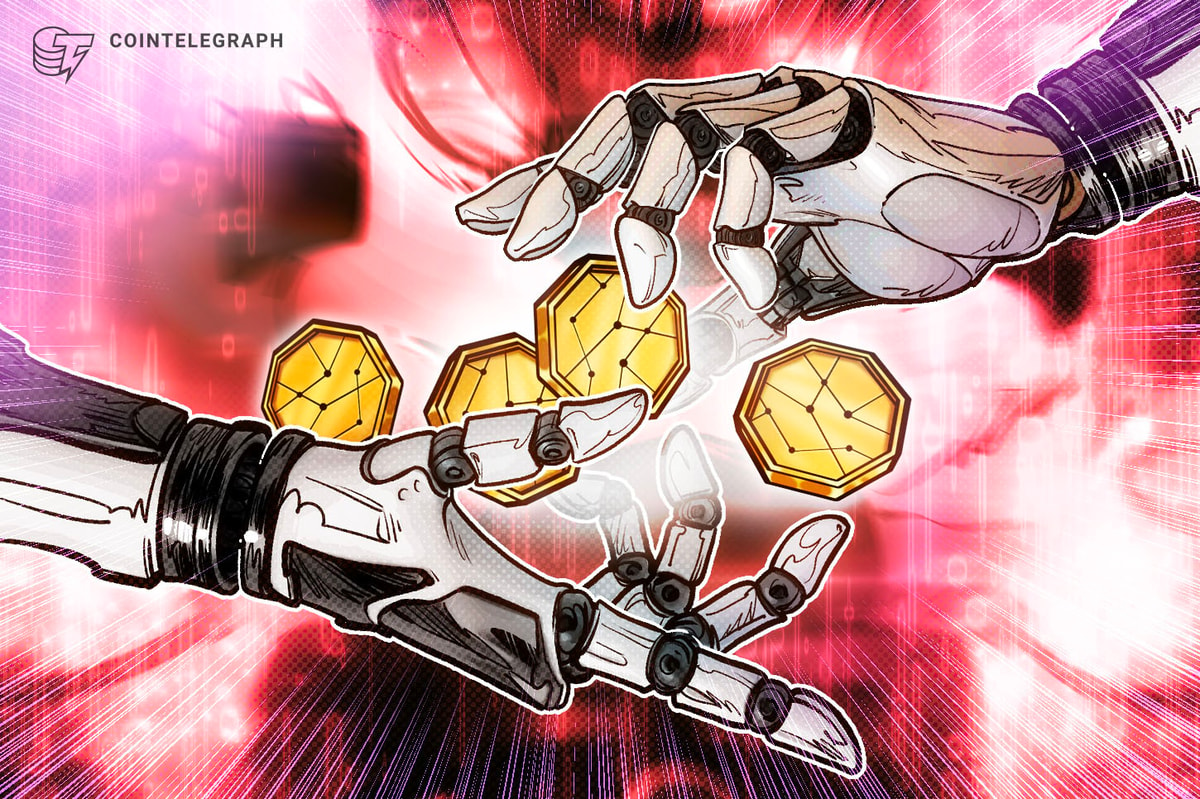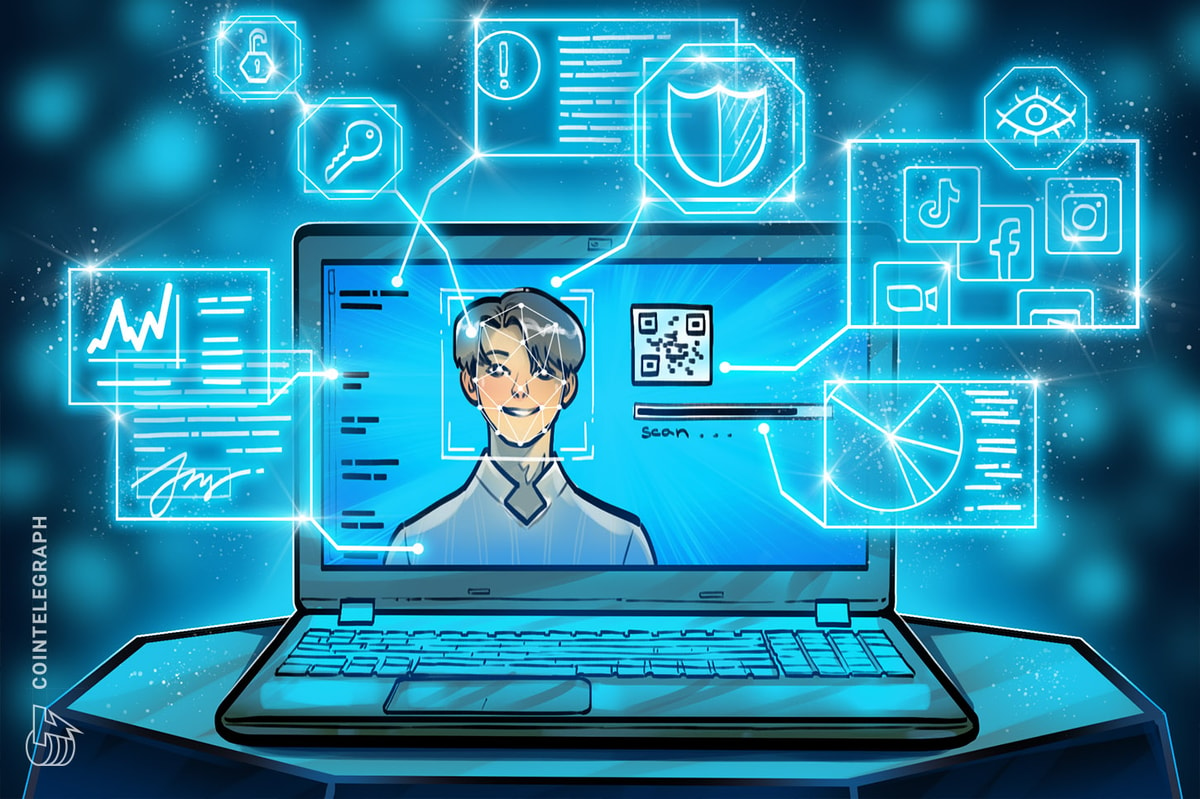Two Master’s Students Challenge the Academic Publishing World with Research on Artificial Intelligence and Blockchain
New Paper Proposes Integration of AI and Blockchain to Address Concerning Aspects of AI
Two Master of Accounting students in the University of Oregon’s Lundquist College of Business are making a splash in the academic publishing world with a new paper on a timely topic: artificial intelligence (AI) and blockchain.
Jordan Brewer and Dhru Patel are interested in the intersection of accounting technology and how blockchain could help address some of the more concerning areas of AI. Their paper, titled “Navigating the Challenges of Generative Technologies: Proposing the Integration of Artificial Intelligence and Blockchain,” is scheduled for publication in the journal Business Horizons and is co-authored with Alex Murray, an assistant professor of management, and Dennie Kim at the Darden School of Business at the University of Virginia.
Rare and Impressive Achievement for Master’s Students
In fact, it’s relatively rare for doctoral students to co-publish research papers with a faculty mentor, and it’s almost unheard of for students at the master’s level to publish, let alone on their first try and with no revisions requested.
Fast-Tracking Publication to Address Timely Topic
The article is being fast-tracked for publication because it addresses the modern topic of misinformation distribution, including deepfake videos, pictures, and text, according to Murray.
Proposing a Solution
In their paper, Brewer, Patel, Murray, and Kim propose a responsibility and transparency-centered solution involving blockchain, the online ledger system used for cryptocurrency and other transactions. Specifically, the authors describe how integrating blockchain ledgers into AI addresses several of its current challenges, including “hallucinations” linked to biases and hate speech.
Their proposed solution would help ensure factual information and accountability to help prevent misuse. Murray explained, “In the absence of meaningful regulations on AI, we suggest ways in which a technological infrastructure built on blockchain can mitigate the detrimental effects of AI.”
Accountability, Reliability, and Privacy
Integrating blockchain technology into AI enhances reliability and accountability, all while keeping people’s data private, according to Patel. This solution addresses the concerns surrounding AI’s ability to spread misinformation and propaganda.
The Students’ Research and Future Plans
Brewer and Patel are members of the Oregon Blockchain Group, which was formed to educate and empower people on blockchain and other cutting-edge technologies. Patel serves as the executive adviser, and Brewer is the director of venture capital.
Both students are on track to graduate this June with jobs lined up at public accounting firms. Jordan is headed to Morgan Stanley in New York, and Dhru will join PWC in San Francisco.
Patel expressed his interest in exploring how integrating blockchain could positively change the culture aspect of AI. Brewer also plans to continue writing and keeping this topic top of mind in the accounting industry, focusing on how research could enhance human productivity rather than replace it.
Next Steps for the Lundquist College Team
Up next for the Lundquist College team is additional research, following up on things they learned from the current project. Patel noted that the research raised several issues that can be pursued further.
One topic they want to delve into is how AI tools are being used and influenced by major industry players, while the public is still struggling to get an even footing in the fast-moving AI world.
“Collective organization could overpower corporations,” Patel said. “We are looking into creating incentive structures around that.”
Conclusion
The intersection of AI and blockchain offers a promising solution to address the concerning aspects of AI, including misinformation and bias. The collaboration between Brewer, Patel, Murray, and Kim demonstrates the potential for student-faculty partnerships to produce high-quality research that tackles real-world challenges.
Frequently Asked Questions
- What is the research paper about?
The paper proposes the integration of artificial intelligence and blockchain to address the concerns surrounding AI, including misinformation and bias.
- Why is the paper being fast-tracked for publication?
The article is being fast-tracked for publication because it addresses the modern topic of misinformation distribution, including deepfake videos, pictures, and text.
- What are the benefits of integrating blockchain into AI?
Integrating blockchain technology into AI enhances reliability and accountability, all while keeping people’s data private. This solution addresses the concerns surrounding AI’s ability to spread misinformation and propaganda.
- What is the next step for the Lundquist College team?
The team plans to conduct additional research, following up on the issues they raised in their current project. They will explore topics such as the use of AI tools by industry players and the creation of incentive structures to promote responsible AI development.









